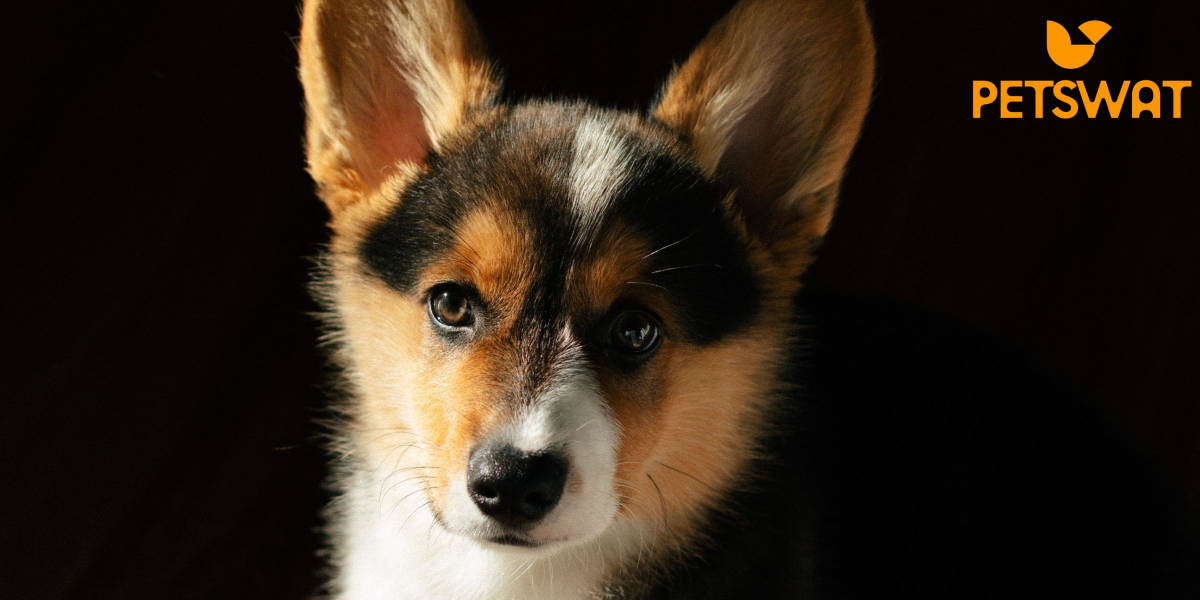Corgis are a beloved breed known for their adorable appearance and playful personalities. However, they also have a reputation for being aggressive dogs. This reputation may stem from their herding instincts and protective nature. To understand why Corgis are sometimes labeled as aggressive, it is important to delve into the history of the breed. In this post, we will answer to a popular question: Are Corgis Aggressive?
tl;dr: Corgis are generally not aggressive dogs; they are known for their friendly and sociable temperament.
Corgis originated in Wales and were primarily used as herding dogs. They were bred to be independent thinkers and to make decisions on their own while herding livestock. This independent nature can sometimes be mistaken for aggression, especially if the dog is not properly trained or socialized.
Understanding Aggression in Dogs: Nature vs. Nurture
Aggression in dogs can be influenced by both nature and nurture. Nature refers to the genetic predisposition of a dog, while nurture refers to the environment in which the dog is raised. Both factors play a significant role in a dog’s behavior.
Genetics can influence a dog’s temperament and predisposition to aggression. Some breeds are more prone to aggression due to their breeding history, while others may have specific genes that contribute to aggressive behavior. However, it is important to note that genetics alone do not determine a dog’s behavior. The environment in which a dog is raised and the experiences they have can also shape their behavior.
The Role of Socialization in Corgi Behavior
Socialization is crucial in preventing aggression in Corgis. It involves exposing the dog to various people, animals, and environments from a young age, so they become comfortable and confident in different situations. Proper socialization helps Corgis develop good manners and reduces the likelihood of fear-based aggression.
To socialize a Corgi puppy, it is important to expose them to different people, including children, adults, and seniors. They should also be introduced to other animals, such as dogs and cats, in a controlled and positive manner. Exposing them to different environments, such as parks, busy streets, and public places, can also help them become more adaptable.
Common Triggers for Aggression in Corgis
While Corgis are generally friendly and sociable dogs, there are certain situations that can trigger aggression in them. Understanding these triggers can help owners avoid or manage them effectively.
One common trigger for aggression in Corgis is fear. If a Corgi feels threatened or scared, they may respond with aggression as a way to protect themselves. Another trigger can be resource guarding, where a Corgi becomes possessive over food, toys, or other valuable items. Additionally, territorial aggression can occur if a Corgi feels their space is being invaded.
To avoid or manage these triggers, it is important to provide a safe and secure environment for the Corgi. This includes ensuring they have their own space and resources, and avoiding situations that may cause fear or anxiety. Proper training and socialization can also help reduce the likelihood of aggression in these situations.
Signs of Aggression in Corgis: What to Look For
It is important for owners to be able to recognize the signs of aggression in their Corgis. This can help prevent any potential incidents and allow for appropriate intervention.
Physical signs of aggression in Corgis may include raised hackles, bared teeth, growling or snarling, lunging or snapping, and a stiff body posture. Behavioral signs may include excessive barking, pacing, and intense staring. It is important to note that these signs may vary depending on the individual dog and the situation.
If a Corgi displays any signs of aggression, it is important to respond appropriately. This may involve removing them from the triggering situation, redirecting their attention to something positive, or seeking professional help if the aggression persists.
Training Techniques for Managing Corgi Aggression
Positive reinforcement training methods are highly effective in managing Corgi aggression. These techniques involve rewarding desired behaviors and ignoring or redirecting unwanted behaviors. Punishment-based training methods should be avoided, as they can exacerbate aggression and damage the bond between the owner and the dog.
To modify a Corgi’s aggressive behavior, it is important to focus on teaching them alternative behaviors and providing them with appropriate outlets for their energy. This can include teaching them basic obedience commands, such as sit, stay, and leave it, as well as providing mental and physical stimulation through interactive toys and games.
Consistency is key when using positive reinforcement training techniques. It is important to set clear boundaries and expectations for the Corgi and to reward them consistently for good behavior. This helps reinforce positive behaviors and reduces the likelihood of aggression.
The Importance of Consistency in Corgi Training
Consistency is crucial when managing Corgi aggression. Dogs thrive on routine and clear expectations, so it is important to be consistent in training and handling.
Consistency involves using the same commands, cues, and rewards consistently. It also means setting clear boundaries and enforcing them consistently. For example, if a Corgi is not allowed on the furniture, it is important to enforce this rule consistently to avoid confusion.
Inconsistency in training can lead to confusion and frustration in dogs, which can contribute to aggressive behavior. By being consistent in training and handling, owners can help their Corgis understand what is expected of them and reduce the likelihood of aggression.
Seeking Professional Help: When to Consult a Dog Behaviorist
In some cases, it may be necessary to seek professional help for managing Corgi aggression. A dog behaviorist or trainer with experience in aggression can provide valuable guidance and support.
A dog behaviorist can assess the underlying causes of aggression in a Corgi and develop a customized behavior modification plan. They can also provide guidance on training techniques and help owners understand and manage their dog’s behavior.
It is important to consult a professional if the aggression is severe, persistent, or if there is a risk of injury to people or other animals. A dog behaviorist can provide the necessary expertise and support to address the aggression effectively.
Myths and Misconceptions About Corgi Aggression
There are several myths and misconceptions about Corgi aggression that can be harmful and misleading. It is important to debunk these myths to ensure accurate information is available to Corgi owners.
One common myth is that all Corgis are naturally aggressive. This is not true. While some Corgis may have a predisposition to aggression due to their genetics, it does not mean that all Corgis are aggressive. Proper training, socialization, and handling can help prevent aggression in Corgis.
Another myth is that aggression in Corgis cannot be managed or modified. This is also false. With the right training techniques and professional guidance, aggression in Corgis can be effectively managed and modified.
Conclusion: Loving and Living with Your Corgi
Despite their reputation for aggression, Corgis can make wonderful companions when properly trained and socialized. By understanding the factors that contribute to aggression in dogs, such as genetics and environment, owners can take proactive steps to prevent and manage aggression in their Corgis.
Socialization, consistency in training, and seeking professional help when needed are all important aspects of managing Corgi aggression. By providing a loving and structured environment for their Corgis, owners can enjoy a fulfilling and harmonious relationship with their furry friends.
Originally posted 2023-08-11 04:42:01.
Johny is a dedicated pet enthusiast, author, and the driving force behind the insightful content at PetSWAT. With a deep passion for animals and a wealth of knowledge acquired through years of experience, Johny brings a unique perspective to the world of pet care and companionship.





